- Home
- Jane Green
Second Chance Page 2
Second Chance Read online
Page 2
In so many ways, Holly has exactly the life she has always wanted. She still gets pleasure every time she comes home, and still, at least four times a week, she finds herself wandering around her house, leaning in doorways and looking at rooms, smiling at the home she has created.
She has her gorgeous, adorable children, Daisy, who is like a mini-me of Holly, and Oliver, who is more serious, pensive, more like her husband.
She has a career she loves – she is a freelance illustrator – and a husband who would appear to be the perfect husband. He is successful – a lawyer in one of the top family law firms, he has become the divorce lawyer of choice for several celebrities of late. He is tall and distinguished-looking in his bespoke suits and natty silk ties, the salt and pepper of his hair giving him a gravitas he only aspired to when he and Holly met. He has changed enormously, but Holly tries not to think about it, or at least tries not to dwell upon it. His old friends have even tried to gently rib him about changing his name from Mark to Marcus, but it has gone down like a lead balloon, and the few friends remaining have learnt not to tease Marcus about his past.
Did he have humour? Holly supposes so. She remembers a time when he used to make her laugh, when they used to go out with friends and she would wipe the tears of laughter away from her cheeks. She doesn’t seem to have laughed with him for a long time, Marcus working longer and longer hours as his career has continued to shoot upwards.
They haven’t seen friends either, for that matter, not for a while. Holly, who loves cooking, would regularly host dinner parties in the old days. She didn’t actually want to have dinner parties, would have preferred casual kitchen suppers, friends standing around the island with giant glasses of wine as she threw together a salad, but Marcus insisted on doing things properly.
Marcus insisted on the best crystal being out, the silver cutlery. He insisted on eating in the dining room at the mahogany pedestal table with the Chippendale chairs, but they had been a gift from a great-aunt of Holly’s whom she had always hated. They are beautiful, naturally, but they seem so formal, so out of place with the life she had envisioned for herself.
One night they had gone to the neighbours’ for dinner, and the dining room was a light, bright room, French doors leading onto a terrace, every wall a floor-to-ceiling bookshelf lined with books, the wooden floors painted a white gloss, an old round table with retro Formica chairs. It was hip and warm and fun, and Holly had loved it.
‘Wouldn’t our dining room be wonderful like that?’ she had said to Marcus as they climbed into the car at nine o’clock. (Holly had wanted to stay later, had been dying to stay later having not had that much fun in ages, but Marcus had insisted on leaving because he was in the middle of a big case and still had work to do when he got home.)
Marcus had shuddered. ‘I thought it was ghastly,’ he’d said. ‘Dining rooms are for dining in, not for reading in.’
Oh fuck off, Holly had thought, rolling her eyes as she turned her head and looked out of the window. Since when was he the expert on dining rooms?
Marcus has an awful lot of theories, particularly about what is right and what is wrong; how one is supposed to act; how children are supposed to behave; what is common and what is not.
Most people are fooled by Marcus, believe he is as he appears, but there are many who are not. Holly, though, does not realize this. Not yet. Holly thinks that people take Marcus at face value. She thinks that he has perfected his image as someone who comes from a good family, from old money, from aristocratic intelligentsia, and has managed to pull it off. Why he would want to do this in the first place is something Holly does not even try to understand.
Some of the time Marcus does pull this act off. Admittedly the few remaining friends from university who remember his parents, his childhood home, know that it is all an act, but they are still in his life because they have learnt the art of discretion.
So he has acquired manners and tact and gracious-ness and charm from Holly, but because he is mimicking her, mimicking those around him whom he is trying so hard to emulate, and because none of it comes naturally to him, the charm has a habit of falling off, the manners have a tendency to disappear, particularly when Marcus is feeling superior.
He tries desperately to keep his mother in Bristol, terrified that she will give his past away; and poor Joanie, who longs to spend time with her grandchildren but doesn’t know how to be around a son she no longer recognizes, sits on herownin her little house, surrounded by photographs, utterly bewildered.
Bewildered at how she produced a son like this, a son whom she has come to realize is more than a little embarrassed by her. A son who keeps buying her Hermès scarves and Burberry raincoats, not because she needs them or because she asks for them but because, she well knows, he is trying to turn her into something she is not.
Her plastic rain scarf is fine, thank you very much, and her mac bought from M&S all those years ago still does a great job. When the gifts arrive, she bundles them up and takes them down to Oxfam unless, of course, she’s having a bridge night beforehand, when her friends get to choose.
She doesn’t know what to make of this son who speaks with more marbles in his mouth than the queen. She’s extremely proud of what he’s achieved – she is the only mother in her area with a son who’s a lawyer and working his way towards becoming a partner. A partner! Who would have thought! But on a personal level, she has to admit she doesn’t like him very much.
She feels awful saying that about her son. How could she possibly feel that about her own flesh and blood? But Joanie Carter is nothing if not matter-of-fact, and while he will always be her son and she will always love him, she is quite clear that she doesn’t like him.
Who does he think he is? she finds herself thinking when another scarf arrives. But she already knows the answer. He’s Marcus Carter. And he thinks he’s better than all of us.
She thinks Holly is wonderful because she is so down to earth. Joanie can see Marcus growing more and more self-important, more and more puffed up with pride, and she hopes, has always hoped, Holly will knock it out of him.
She doesn’t know how Holly puts up with her son, and is so pleased that Holly acts normally and doesn’t obey Marcus when he’s not around, which seems to be most of the time these days. But she can’t help but wonder what they’re doing together, can’t help but think that this may be the most peculiar match she’s ever seen.
She thought it was an odd pairing from the beginning although she was delighted. Marcus took her and Holly out to tea at the Ritz, and Holly was so effervescent Joanie was worried she might just fizz up through the ceiling. Thank God, she thought with relief. Maybe my son has a chance after all. Maybe this lovely, real girl will knock the stuffing, the stuffiness, out of him.
And then the engagement and a diamond ring that was bigger than anything Joanie had ever seen, and plans that took on a speed and energy of their own. Holly had phoned and said it would be small, maybe in a little hotel or a service in their local church and a lunch for their friends.
It had ended up being at the Savoy. Two hundred people. Holly glorious in her Jenny Packham sheath dress, but strangely subdued, Joanie had thought – serene and stunning, but there was a hint of sadness that she pushed to the very back of her mind, refusing to acknowledge what it might mean.
Even Holly refused to acknowledge what it might mean. Marcus had proposed, exactly as she had known he would, on bended knee next to the River Thames beside the Southbank Centre. He had the ring, exactly as she had known he would, and she couldn’t think of a reason to say no.
After all, he was everything she thought she ought to have been looking for, and soon she was swept up in the momentum of planning the wedding – so very much more lavish than she had wanted, but this was Marcus’s day too – and she didn’t stop to question her doubts, didn’t stop to allow them space to breathe and grow.
Looking back, an observer might say that Holly seemed heavy on her wedding day. Not heavy
in weight – Holly was positively tiny on the day itself, the stress of keeping Marcus happy already having taken its toll – but there was a weight on her shoulders, a flatness of spirit, a heavy energy.
She kissed Marcus, she danced, she greeted her guests and lit up when talking to people she loved, but it wasn’t perhaps what you would expect from the bride on a day that is supposed to be the happiest day of her life.
Joanie had not been able to put her finger on it, but if you asked her, if you gave her the words, she would nod in wonder, for that is exactly what she felt. And all these years on, she worries that Holly isn’t happy. Worries that, despite outward appearances and despite the children, Marcus has become too difficult, too imperious for Holly to stay.
Holly could judge Marcus, could find the faults his mother finds unbearable but, on the whole, she doesn’t. She knows that there is a different Marcus, wouldn’t be with him still, surely, if there wasn’t a different Marcus hiding behind the pomposity and grandness.
Holly knows that deep down there is a frightened little boy who doesn’t feel good enough; and in order to try to feel good enough he has to surround himself with people he deems worthy; fraternizing with anyone less than himself would diminish him in other people’s eyes, so he doesn’t bother with anyone he regards as inferior.
It was one of the reasons he fell in love with Holly. She came from the background he wished he had, was the ultimate trophy wife. Except once he had her, he had to subtly put her down, make sure she never thought she was better than he was, make sure that he was still able to feel superior.
Despite all this, Marcus has good points. Of course he does; why else would Holly have married him? For starters, he loves her, or at least Holly believes he loves her. He performs random acts of kindness, thought-fulness. When he passes the newsagent on the way home from work and sees the latest Hello! or heat, he will always pick it up for her. He frequently sends her beautiful flowers, and occasionally comes home with a Crunchie or a Kit-Kat, Holly’s favourite forbidden indulgence.
He is, when home, great with the children. Not for very long, and only when the children are behaving as he thinks appropriate, i.e. no screaming, whining, crying or hitting – all the behaviours, incidentally, that Holly has to put up with all the time – however, the children are too terrified to behave in ways anything other than exemplary, and on those occasions Holly’s friends will watch him approvingly and murmur what a wonderful father he is.
And he is a wonderful husband too, Holly tells herself during those moments in the middle of the night when she wakes up gripped by panic, panic that her marriage won’t be for ever, that she has never been more lonely than she is now, that she never sees him, that she has nothing in common with him, that they are growing further and further apart.
Marcus wouldn’t see this. Why would he, when Holly, like most women, is a consummate chameleon? During the day, when Marcus isn’t around, she can be herself, can have girlfriends and their children round for lunch, throwing together salad, pitta bread and dips to eat around the kitchen counter as the kids make a mess of fish fingers and ketchup around the kitchen table.
She can break open bottles of wine and put Shakira on the stereo, she and Frauke shaking their hips while Daisy, attempting to imitate them, shocks Holly at how a four-year-old can appear to be so mature, so womanly, o – good lord, she can’t believe she thinks this – sexy.
But she can have fun, can throw on ratty old cargos and trainers, hoodies and no make-up, and not worry about impressing anyone.
And when Marcus comes home, she can slip into what he likes. If they’re staying in she’ll swiftly change into crisp, dark jeans and a cashmere sweater, small diamond studs in her ears, or, if going out to supper, smart woollen trousers, high-heeled boots, a velvet jacket.
The music goes off, the cushions are plumped to perfection. Holly finds herself running through the house every night before Marcus comes home, checking that all is exactly the way he likes it. The children are not allowed to build forts out of the sofa cushions in the living room, and Frauke is in charge of making sure Marcus doesn’t know that almost every afternoon every cushion in the house is piled up in the centre of the room.
The children are also not allowed to run ‘naked like savages’ through the garden, and on the rare summer afternoons when Marcus announces he’s coming home early, she and Frauke beg, cajole and plead with the kids to put their swimsuits back on before Daddy comes home.
Her own father had stopped showing interest in Holly soon after the divorce. She remembers very clearly being fourteen years old, her father taking her to the soda fountain at Fortnum & Mason for tea and, over a huge chocolate sundae, telling her that he loved her, would always be there for her, and that no matter what happened he was going to see her every week and every other weekend.
He didn’t say that the reason for the divorce was his persistent infidelity. Holly only found that out later.
For a while, he kept his word about seeing Holly. For six months. And then he met Celia Benson, and suddenly he was jetting off to Paris, or Florence, or St Tropez with Celia, and soon he had a new family, and Holly was largely ignored.
Her father, she realized as an adult, was weak. Celia Benson didn’t want the child from his first marriage being around, and he acquiesced, allowed himself to give her up. To this day Holly blames Celia.
Is Holly happy? Happiness is not something Holly thinks about very often. She certainly has everything a woman could want in order to be happy, so how could she be anything but? The fact that they sleep in a king-sized bed, both on the far edges, a huge expanse of space in the middle, Holly furious if a leg or an arm should wander over to her side, doesn’t mean she’s unhappy, surely? The fact that they rarely have sex any more, and when they do it’s perfunctory, doesn’t mean she’s unhappy, surely? The fact that Holly finds herself withdrawing more and more from life, having already given up several friends Marcus deemed ‘unsuitable’, doesn’t mean she’s unhappy.
Surely?
Distractions do a wonderful job of keeping her mind off the fact that her life is not quite what she expected it to be. There are her children, for starters. Her house. And, of course, work. A freelance illustrator for a greeting-card company, Holly can lock herself away in her studio at the top of the house and lose herself for hours in a delicate watercolour of a little girl and a puppy, only coming out of her reverie when she hears Frauke and the kids returning from the park. A couple of days a week she goes to the studio at the company, but mostly to keep her hand in and to remove herself from the isolation of working alone at home, to feel part of the company.
She hasn’t been in that much recently, not least because of her exhaustion. Sleep is becoming a growing problem, and Holly’s defences are nowhere in sight when she wakes up in the middle of the night, her heart pounding with fears she refuses to acknowledge. She is finding herself sleeping more and more in the middle of the day, yet however much sleep she gets, she never feels truly energized.
Now, sitting at the kitchen counter after another daytime nap, Holly finds herself thinking about when she had last been truly happy. School? Well, no. She hadn’t been happy there, but outside school, when she, Olivia, Saffron, Paul and Tom had been together, then she’d been happy.
And at university. She and Tom, best friends, in love with one another since the day they met at fifteen, but somehow never managing to make it happen… Those had been happy times.
Holly smiles as she remembers those days. She hasn’t spoken to Tom for weeks. They kept in touch for ages with phone calls, then dwindling emails; but once Tom had met Sarah while she was working in his London office, then moved to her home town in America to marry her, their friendship never seemed quite the same, although Holly always thought it was just a phase.
Olivia, she has discovered, works for an animal charity. Every now and then Holly will spend an afternoon Googling friends from a previous life, hence her discovery of a picture of a smilin
g Olivia holding a kitten at a benefit to raise money for her charity. She had looked the same, other than that her beautiful waist-length hair was now in a short bob. Holly had sent her an email, years ago, to which Olivia had responded warmly, but somehow they had never managed to follow through.
Saffron, as befits someone named Saffron, is now a semi-famous actress trying to become a movie star in Los Angeles. She has been in several low-budget British films, has had tiny parts in major films, and is often recognized in the streets. She is regularly profiled in British magazines and newspapers as the next big thing; however, at thirty-nine – even though Saffron would never admit it – Holly knows that Saffron is unlikely to be the next big anything in Hollywood movies.
Holly hasn’t seen Paul for years. He and Tom have kept in touch. Tom, in fact, seemed to keep in touch with everyone, albeit sporadically, but now and then he’d send Holly an email, making her laugh with stories of what Paul, the eternal womanizer, was up to.
Tom would say, once he married Sarah, that he was able to live his life vicariously through Paul, but Holly remembers that Paul got married a couple of years ago, to a beautiful girl, someone successful, if Holly remembers correctly, and Paul had sworn to Tom that she had changed him completely.
Holly remembers sitting at the hairdresser’s, flicking through Vogue, and stopping short when she turned the page and suddenly came across Paul, lounging across an oatmeal-coloured Eames sofa, dressed head to toe in Prada, looking suspiciously like a male model, with a gorgeous blonde draped between his legs, a Chloé dress on her spectacular figure, her head thrown back, hair like a silken wave over his arm.
Her mouth had dropped open as she started reading about the marriage of this new power couple: Paul Eddison, journalist and man-about-town, and Anna Johanssen, founder and CEO of fashionista.uk.net.
Of course Tom had told her that Paul was getting married, but she had no idea it was such a big deal. She had pored over the pictures, stunned at how trendy Paul had become, but when she’d phoned Tom to squeal about it, Tom had just laughed.

 Saving Grace
Saving Grace Summer Secrets
Summer Secrets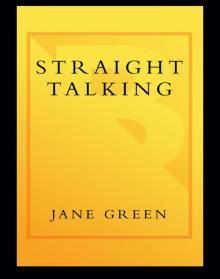 Straight Talking
Straight Talking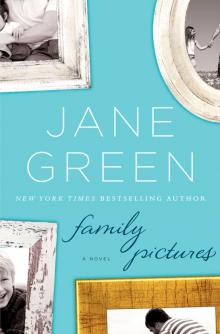 Family Pictures
Family Pictures The Holiday
The Holiday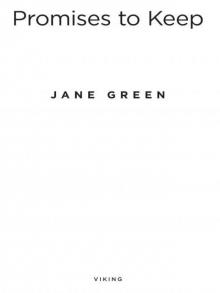 Promises to Keep
Promises to Keep Second Chance
Second Chance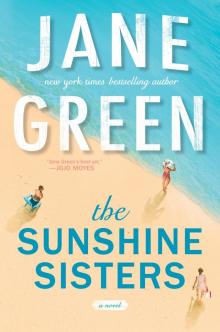 The Sunshine Sisters
The Sunshine Sisters Dune Road
Dune Road Bookends
Bookends The Beach House
The Beach House Mr. Maybe
Mr. Maybe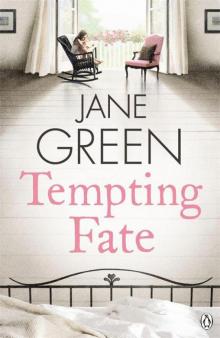 Tempting Fate
Tempting Fate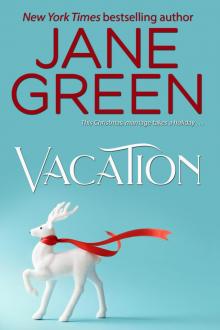 Vacation
Vacation The Other Woman
The Other Woman The Friends We Keep
The Friends We Keep To Have and to Hold
To Have and to Hold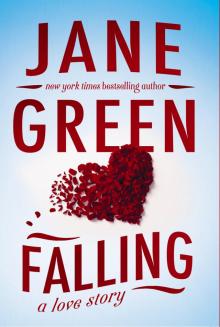 Falling
Falling Swapping Lives
Swapping Lives This Christmas
This Christmas Life Swap
Life Swap Cosmo's Sexiest Stories Ever
Cosmo's Sexiest Stories Ever